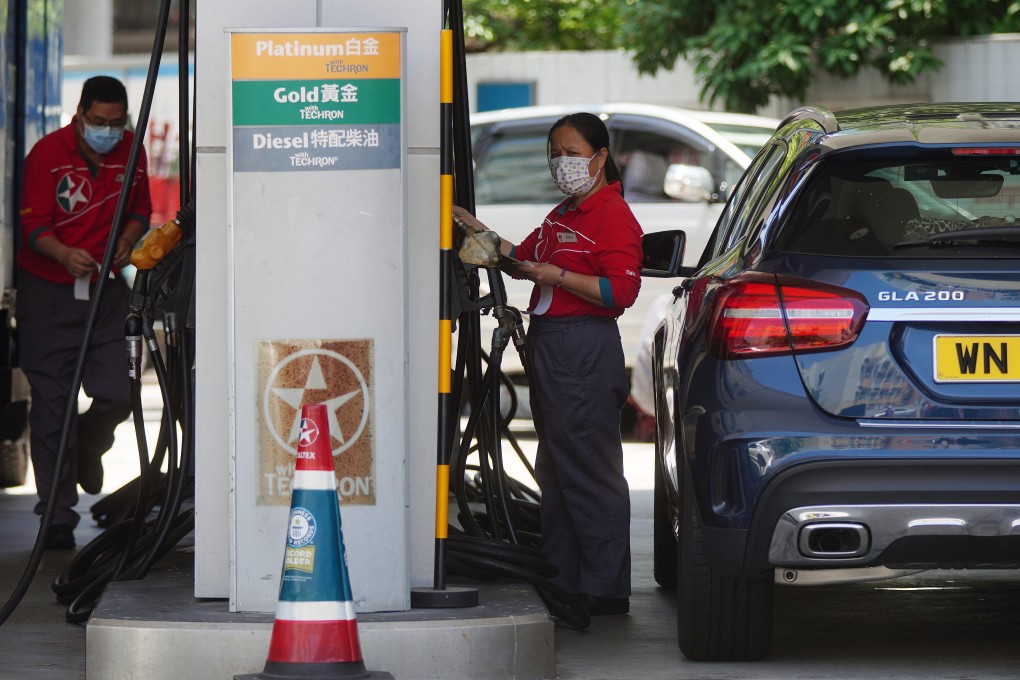Hong Kong Consumer Council calls for review of city’s motor-fuel market
- Study conducted by watchdog finds gap between retail and import prices of fuel has doubled over past seven years
- Its chief executive, Gilly Wong, has urged the government to increase transparency so authorities can investigate the pricing mechanism

Hong Kong’s Consumer Council on Thursday called for a regulatory review of the city’s motor-fuel market after a study conducted by the watchdog found the gap between retail and import prices had doubled over the past seven years.
After looking at petrol price fluctuations between 2013 and the first quarter of 2020, the watchdog found that price increases were much sharper than drops, leading to a cumulative increase in prices.
It questioned why consumers were paying HK$3 (almost 39 US cents) more for every litre of motor fuel than they had been four years ago, even though existing Brent crude oil and import prices had shrunk to 2016 levels, the government’s tax on the commodity remained unchanged and there was more competition, with new service providers entering the market.
“We know the tax on oil has not been increased. So what are the reasons contributing to a widening gap? Is it about an increase in fuel cost, inflation, or land cost? Or their profits have jumped? We want to know the reason,” the council’s vice-chairman Antonio Kwong said.
He urged oil firms and the government to be more transparent in disclosing relevant data.
We would like the government to increase transparency
The study showed although the Brent crude prices and imported fuel costs had dropped between 2013 and the first quarter of 2020, the price of fuel in the retail market had increased.